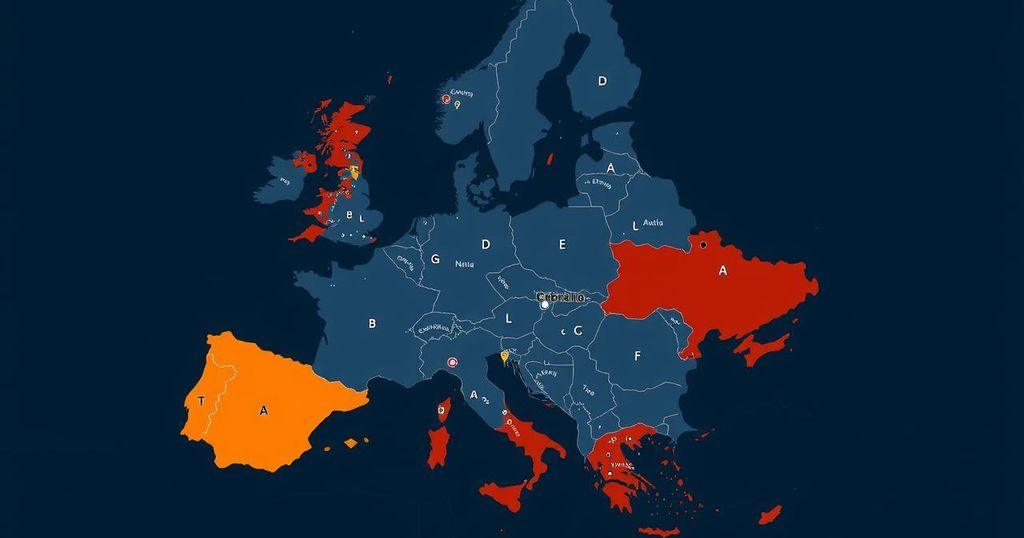World news
ANGELA MERKEL, ASIA, BUNDESTAG, CHINA, CHRISTIAN DEMOCRATIC UNION, CHRISTIAN SOCIAL UNION, DEFENSE SPENDING, DEMONSTRATIONS, EUROPE, EUROPE/ASIA, EUROPEAN UNION, GAZA, GAZA STRIP, GERMANY, ISRAEL, MEXICO, NORTH AMERICA, OLAF SCHOLZ, POLITICS, RUSSIA, SCHOLZ, SPD, STEINMEIER, UKRAINE, UNITED STATES, US PRESIDENTIAL ELECTION, WALTER STEINMEIER
Michael Grant
0 Comments
Germany to Hold Snap Elections on February 23 Following Coalition Collapse
Germany will hold snap elections on February 23 following the collapse of Chancellor Olaf Scholz’s coalition. The decision arises from conflicts within the government over economic policies and aims to restore political stability amid growing challenges. President Steinmeier has supported this timeline, emphasizing the importance of cooperation among mainstream parties to ensure security and reliability during this transitional period.
Germany is poised to conduct snap elections on February 23, following the recent collapse of Chancellor Olaf Scholz’s three-party coalition government. The decision was reached between the nation’s major political parties, settling on a date that compromises between the conservative opposition’s desire for a January election and Scholz’s preference for mid-March. As the political landscape shifts, President Frank-Walter Steinmeier has endorsed this timeline, considering it pragmatic amid a challenging economic backdrop. The upcoming elections are necessitated by the anticipated loss of a confidence vote for Scholz on December 16, which would initiate a process allowing Steinmeier to dissolve the Bundestag. Steinmeier has called on all mainstream political factions to cooperate dutifully during this transition, emphasizing the importance of maintaining Germany’s internal security and international credibility. This political turmoil occurs against the backdrop of potential economic decline in Germany, exacerbated by rising inflation, the ongoing conflict in Ukraine, and increased competition from international markets. Furthermore, the influence of Donald Trump’s impending return to power adds a layer of complexity to the situation, as Germany seeks a cohesive stance within the European Union. Scholz has been in office since late 2021, representing a significant political shift with his tripartite coalition. However, internal conflicts regarding fiscal policies led to the departure of the Free Democratic Party from the government, ultimately triggering the coalition’s collapse. As political uncertainty looms, the far-right Alternative for Germany party is gaining traction, complicating the potential for future coalitions, particularly given mainstream parties’ hesitance to partner with it. Despite the challenging circumstances, Scholz’s party has expressed its confidence in his leadership amid speculations regarding potential successors. He is set against a backdrop of a political campaign that may see lower voter enthusiasm due to the winter season, contrasting with more favorable summer election times. With the February elections, Germany faces a moment of significant political realignment as it endeavors to find stability in uncertain times.
The imminent snap elections in Germany represent a critical juncture following the collapse of Chancellor Olaf Scholz’s coalition government. Scholz, whose administration was characterized by its tripartite nature, faced internal discord primarily over economic strategies, culminating in the departure of the Free Democratic Party. This governmental breakdown highlights the growing fragmentation of Germany’s political scene, as noted by the rising support for the far-right Alternative for Germany. Consequently, these elections seek to stabilize political leadership during a time of economic unrest and geopolitical challenges, including issues such as inflation and the war in Ukraine.
In conclusion, Germany’s scheduled snap elections on February 23 are the result of significant political upheaval following the collapse of Chancellor Scholz’s coalition government. This environment necessitates a return to stable governance as the country navigates economic difficulties and geopolitical pressures. With the backing of President Steinmeier and underlining calls for unity, the elections will assess party dynamics and voter sentiments during a challenging winter campaigning season, shaping Germany’s future political landscape.
Original Source: www.aljazeera.com




Post Comment